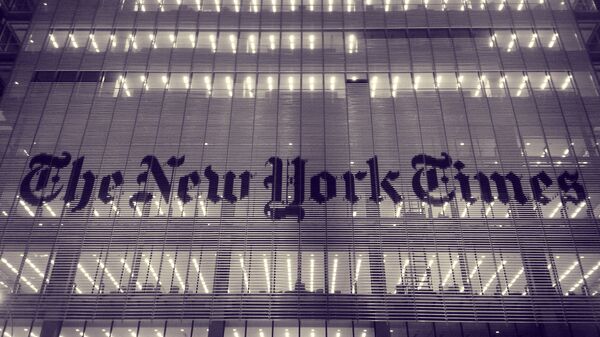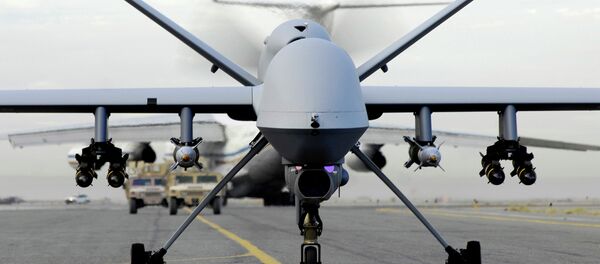The leaked documents obtained by the Intercept uncovered previously unknown details about the US drone war, especially in regards to the sheer number of civilian deaths. And while one would think these revelations would be major news in the US, one would be wrong.
"This trend of underreporting of civilian casualties means readers are not being informed of the real consequences of drone strikes in Yemen and Pakistan," journalist Jeffrey Bachman wrote, after analyzing the coverage of both the New York Times and Washington Post.
"It represents a failure by journalists at these papers to view critically government claims regarding who is killed in particular strikes."
After facing intense scrutiny, the NY Times’ Margaret Sullivan finally addressed the burning question: Why did America’s newspaper of record ignore the latest drone leaks?
"I asked both the executive editor, Dean Baquet, and the editor for national security coverage, William Hamilton, why the story had received relatively short shrift," Sullivan writes.
Their answer is…unconvincing.
"Both said they found the project a worthy one," Sullivan writes. "They and several Washington reporters looked it over with interest, they said, and agreed that there was new detail in it.
"But they didn’t see it as something that warranted its own story, at least not at the moment, they said."
That’s not much of a defense. But Sullivan also feels that the NY Times’ history of reporting on drone strikes excuses it from covering any more.
"Since the Times has done so much on this subject, it may be understandable that only a brief mention of the Intercept’s scoop has been made so far," she writes, after citing four previously published drone stories.
Given that the paper’s current top story is "From Lush California Lawns to 'Gorilla Hair,'" analyzing a program that "encourages homeowners to replace water-guzzling grass with less thirsty materials," it’s still hard to believe that the editors couldn’t find room for what may be the most important government leak since the revelations of Edward Snowden.




